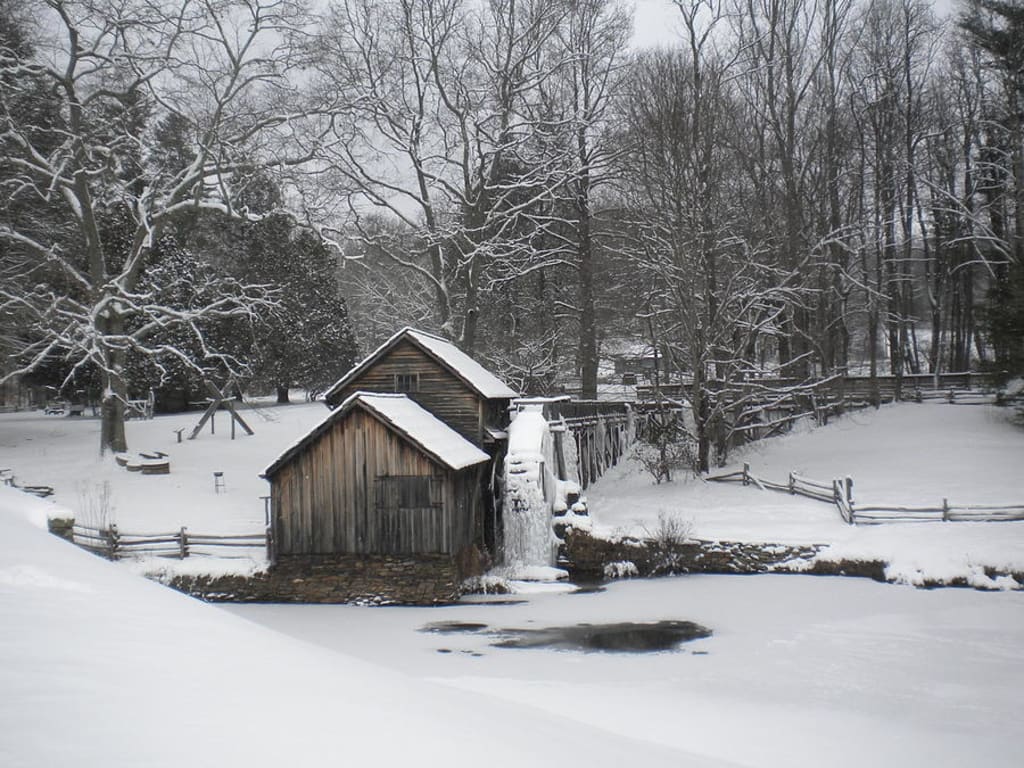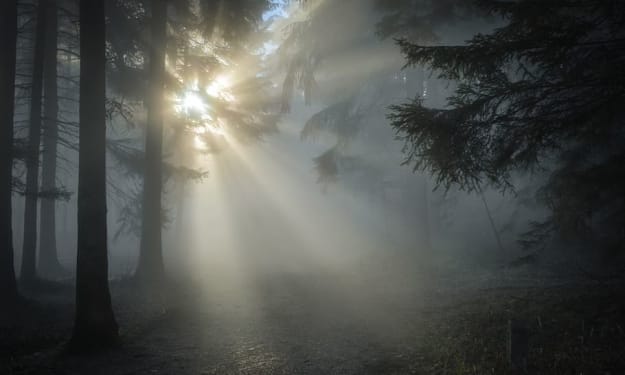
Henry has lived in the cabin in the woods by the pond for two years. He now knows this woods, and this pond, as his closest friends. Closer than the frequent guests he invites for dinner, his friends among the writers and thinkers. No, his friendship with the pond is as close as the footprint in the snow that caresses his boot, or the amicable darkness that hangs about at dusk when he sits on his porch and muses, as he often does.
Henry appreciates the company of other people, but does not require it. He prefers to be alone, to be self-sufficient. He does not understand the broad thing one might call “society,” with all its rules and customs. That the houses must have a certain kind of roof, or one’s clothes must have a certain cut. His roof is plain, but keeps out the rain and snow—isn’t that enough? His clothes are sturdy and practical—isn’t that enough?
Even more, Henry does not understand why a certain tone of voice, or a certain nod, mean everything, the difference between love and disdain. He does not understand this language of faces. He doesn’t terribly care. He prefers his friends and he keeps up pleasant conversations with them about things that really matter, like writing, and nature, and abolitionism, and the beauty of a certain cast of sunlight shining through the woods on a midwinter morning. He enjoys the company of his friends Ralph and Margaret, and all the others, but also of the simple woodsman or Irish rail worker who might, on a casual afternoon, wander by and stop for some tea and a quick conversation. He likes all kinds of people, so long as they are real.
Henry is against the war with Mexico because he is against slavery. He knows full well that this war will increase the territory available to the South for its slavery. All the talk of patriotism and remembering the Alamo are empty to him. All people, Black and White, are human, and this seems so obvious to him that it is incomprehensible that men in the highest offices of government should disagree. This is why he wears wool clothes—and not slave-grown cotton. Or why he refuses to pay taxes, why he spent the night in prison in ’45. If his country wants civil obedience, well, Henry will give them civil disobedience. His conscience will not permit him to do otherwise, and his conscience’s voice is louder than society’s.
And he hears it louder, in the cabin in the woods by the frozen pond.
Henry loves the cabin. He built it all with his own hands. It is a brave experiment in self-sufficiency, also a friend. He still holds his papers with precise records of the cost of each component of the house—the wood and the windows and floorboards. His motto is to simplify, because the world is too complicated, and too bright and too buzzing and too loud and too swiftly changing, and simplicity makes him calm. He does not know why. He just is. He is at peace, here, in the woods, away from people, with every detail noted down.
Henry’s mother stops by his cabin every afternoon to clean for him. Henry likes his plain dirt floor, and the walls and windows. But he sits back and rests his feet and lets her do this one little kindness for him.
“Henry, dear, I do wonder why you don’t marry.”
“I prefer to live simply,” he always replies.
“There are plenty of fine young ladies in that little club of yours, the Transmogrifiers—”
“Transcendentalists, mother.”
“Yes, who would happily marry a bright young man such as yourself.”
“I prefer to live simply. A wife and a family would interfere.”
And what he does not tell her, he has no interest in women. He is married to the cabin and the pond and the woods, and loves the pond as truly as a man ever did love a woman.
He prefers to live in the cabin in the woods away from people because here, in the quiet, in the snow looking out over the glass-smooth surface of Walden Pond, into the crisp blue air between the bare trees, he can hear the beat of his own drummer, and he can march to it.
About the Creator
Anna Hamilton
scientist, artist, aspiring author. teacher. idealist. person who likes to think a lot about the world. Aspergerian. follower of Jesus. person who cares a lot.
I am trying to be a writer :)






Comments
There are no comments for this story
Be the first to respond and start the conversation.